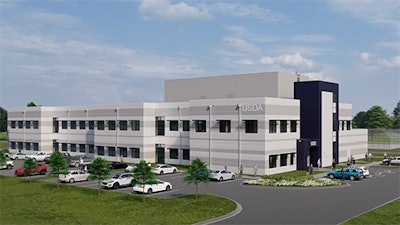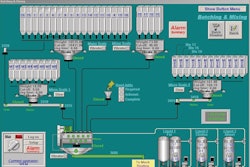
The U.S. Department of Agriculture's Agricultural Research Service (ARS) has officially broken ground on a new Agricultural Research and Technology Center (ARTC) at the University of California, Davis. This state-of-the-art facility is set to consolidate several existing laboratories and enhance research capabilities aimed at advancing crop production and preservation.
The ARTC will be a modern, two-story building spanning 59,000 square feet, designed to include customized laboratories, greenhouses, and collaborative workspaces for scientists. It will house four ARS research units: Crops Pathology and Genetics, Invasive Species and Pollinator Health, the National Clonal Germplasm Repository for Tree Fruit and Nut Crops and Grapes, and Sustainable Agricultural Water Systems. These units focus on improving the health, sustainability, and profitability of agricultural production, addressing challenges such as climate change, water scarcity, and emerging pests.
The collaboration between ARS and UC Davis dates back to 1956 when the Crops Pathology and Genetics Research Unit was established to study grape viruses. Over the years, this partnership has expanded significantly, with ARS scientists now involved across various UC Davis departments, including Plant Pathology, Viticulture and Enology, Entomology and Nematology, and Plant Sciences. This longstanding relationship has facilitated critical research benefiting industries such as almonds, walnuts, rice, and grapes.
With over 30 scientists and supporting staff currently working across the four research units and the Western Human Nutrition Research Center, the move to the ARTC is expected to further enhance collaborative research efforts. Dr. Amisha Poret-Peterson, Acting Research Leader of the Crops Pathology and Genetics Research Unit, emphasized the importance of this facility, stating, “This research will benefit growers, commodity groups, agricultural businesses, and U.S. consumers who rely on ARS to find solutions to agricultural and environmental problems.”
The ARTC is a vital part of ARS's commitment to modernizing infrastructure nationwide, enabling researchers to tackle pressing agricultural challenges from animal science and crop production to climate change and sustainable practices. Dr. Simon Liu, ARS Administrator, noted that the center will serve as a nexus for investigating plant diseases, plant genetic resources, advanced breeding methods, soil health, and invasive species management.
This investment in research infrastructure underscores the USDA's dedication to developing resilient agricultural systems and supporting the diverse needs of California's agricultural sectors. As construction progresses, the ARTC is poised to play a crucial role in fostering innovative solutions for the future of farming in the face of ongoing environmental challenges.













